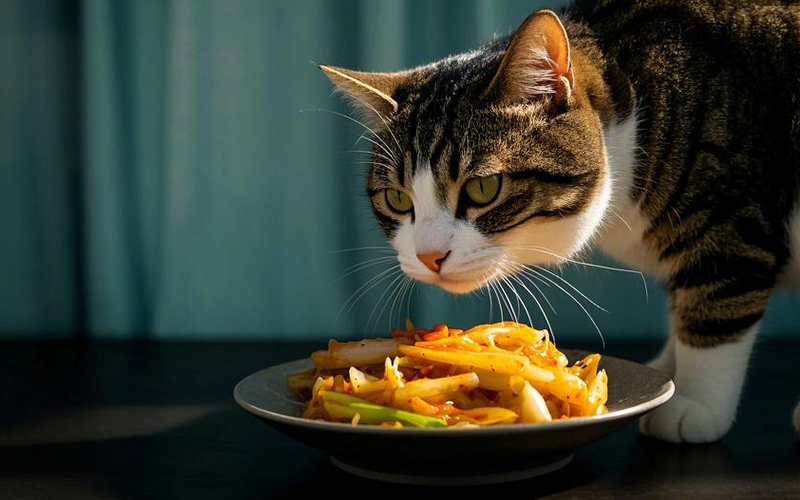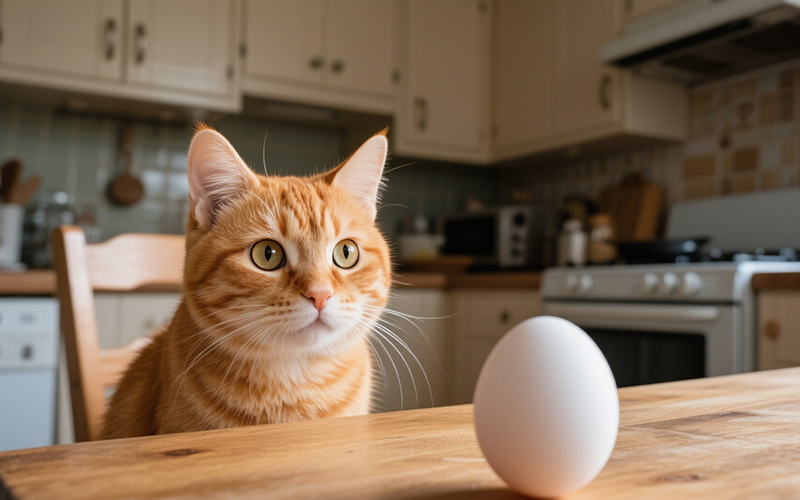Can Cats Eat Pickles? Is It Safe for Cats?
- 3 Mar 2025 10:40
While pickles are not toxic to cats, they are not ideal for feline consumption. Cats are obligate carnivores, which means their digestive systems are not designed to process foods like pickles, especially those containing salt, vinegar, or spices.

Why Pickles Are Not Recommended for Cats
⚠ High Sodium Content – Pickles are often preserved in brine, which is high in salt. Too much sodium can lead to salt poisoning, causing symptoms like vomiting, diarrhea, lethargy, and in severe cases, kidney damage.
⚠ Vinegar and Spices – Many pickles are made with vinegar and spices like garlic and onion. These ingredients are harmful to cats, as they can cause digestive upset and be toxic, especially onion and garlic.
⚠ Lack of Nutritional Value – Pickles offer no essential nutrients that cats need, and they are not a natural or healthy food for them. Their high salt content can lead to imbalances in your cat's dietary needs.
What to Do If Your Cat Eats a Small Amount of Pickle
If your cat has accidentally eaten a small amount of pickle, monitor them for any signs of discomfort, including:
Vomiting
Diarrhea
Lethargy
Excessive thirst or urination
If you notice any unusual symptoms or if your cat consumes a large amount of pickle, it's best to contact your vet to be safe.
Can Cats Have Pickles in Moderation?
It's best to avoid feeding your cat pickles altogether. While a tiny piece of a plain, non-spicy pickle may not cause harm, it's not a recommended treat. Cats' digestive systems simply aren't suited to the ingredients commonly found in pickles, particularly the salt and vinegar.
Safer Alternatives to Pickles for Cats
If you're looking for a safe treat for your cat, try offering:
✅ Plain Cooked Meat – Chicken, turkey, or beef (without seasoning or sauces).
✅ Cat-Friendly Vegetables – Small amounts of carrot or pumpkin (cooked and unseasoned).
✅ Catnip – Many cats enjoy catnip, and it’s a great treat for stimulation.
✅ Small Amounts of Cheese – Some cats can tolerate a small piece of cheese.
Final Verdict: Can Cats Eat Pickles?
❌ No, cats should not eat pickles. While not toxic, pickles are high in salt and may contain harmful ingredients like vinegar, garlic, and spices. For your cat’s health, stick to treats specifically designed for cats and avoid human foods like pickles.
For more pet health tips, consider using PettureX, an AI-powered pet assistant offering 24/7 consultations and pet image recognition to keep your feline friend safe and healthy!
Related

Can Cats Eat Egg Yolk Raw? A Vet's In-Depth Guide to Feline Nutrition & Safety
- 10 Jun 2025
Can Cats Eat Dog Kibble? Unpacking the Nutritional Mismatch!
- 29 May 2025
Can Cats Eat Deli Turkey? Slicing Through the Facts for Your Feline!
- 29 May 2025
Can Cats Eat Deer Meat? Exploring Venison for Your Feline!
- 28 May 2025
Can Cats Eat Corned Beef? Unpacking This Salty Human Delicacy!
- 28 May 2025
Can Cats Eat Cooked Rice? The Grain Truth for Your Feline Friend!
- 27 May 2025
Can Cats Eat Cornbread? A Crumb of Truth for Curious Cat Owners!
- 27 May 2025
Can Cats Eat Cooked Meat? Sizzling Facts for Your Feline's Feast!
- 26 May 2025
Can Cats Eat Chili? Spicing Up the Truth About This Human Dish!
- 26 May 2025
Can Cats Eat Chicken Eggs? Cracking the Code on This Feline Food Query!
- 24 May 2025
